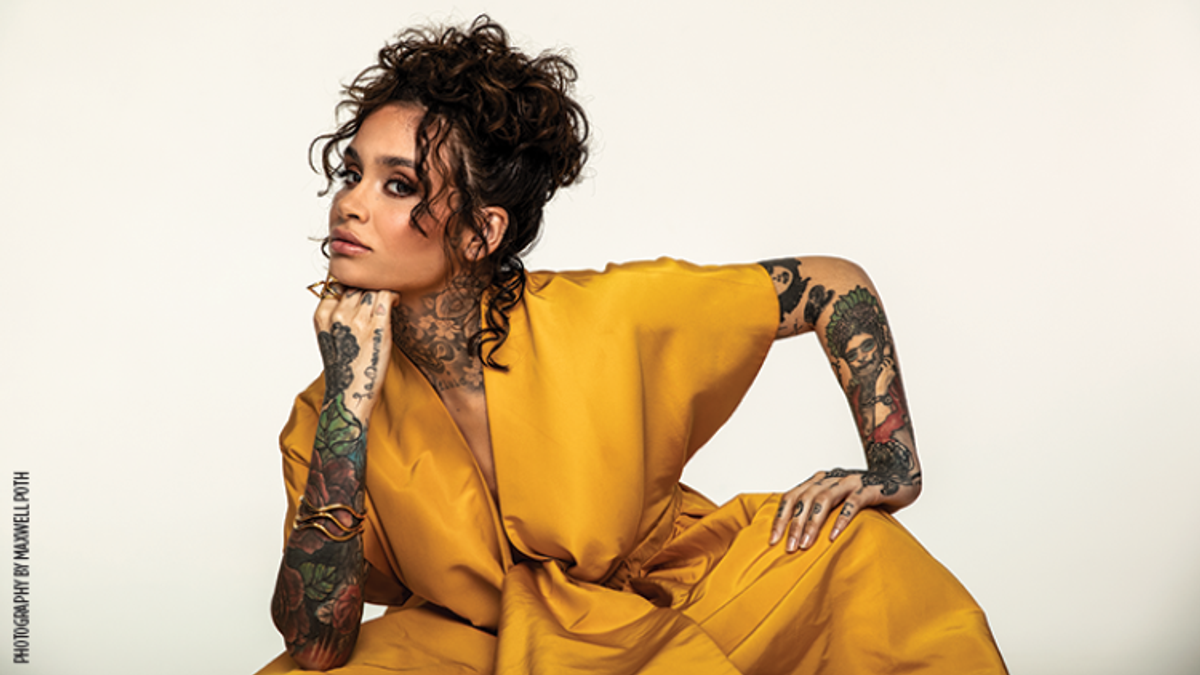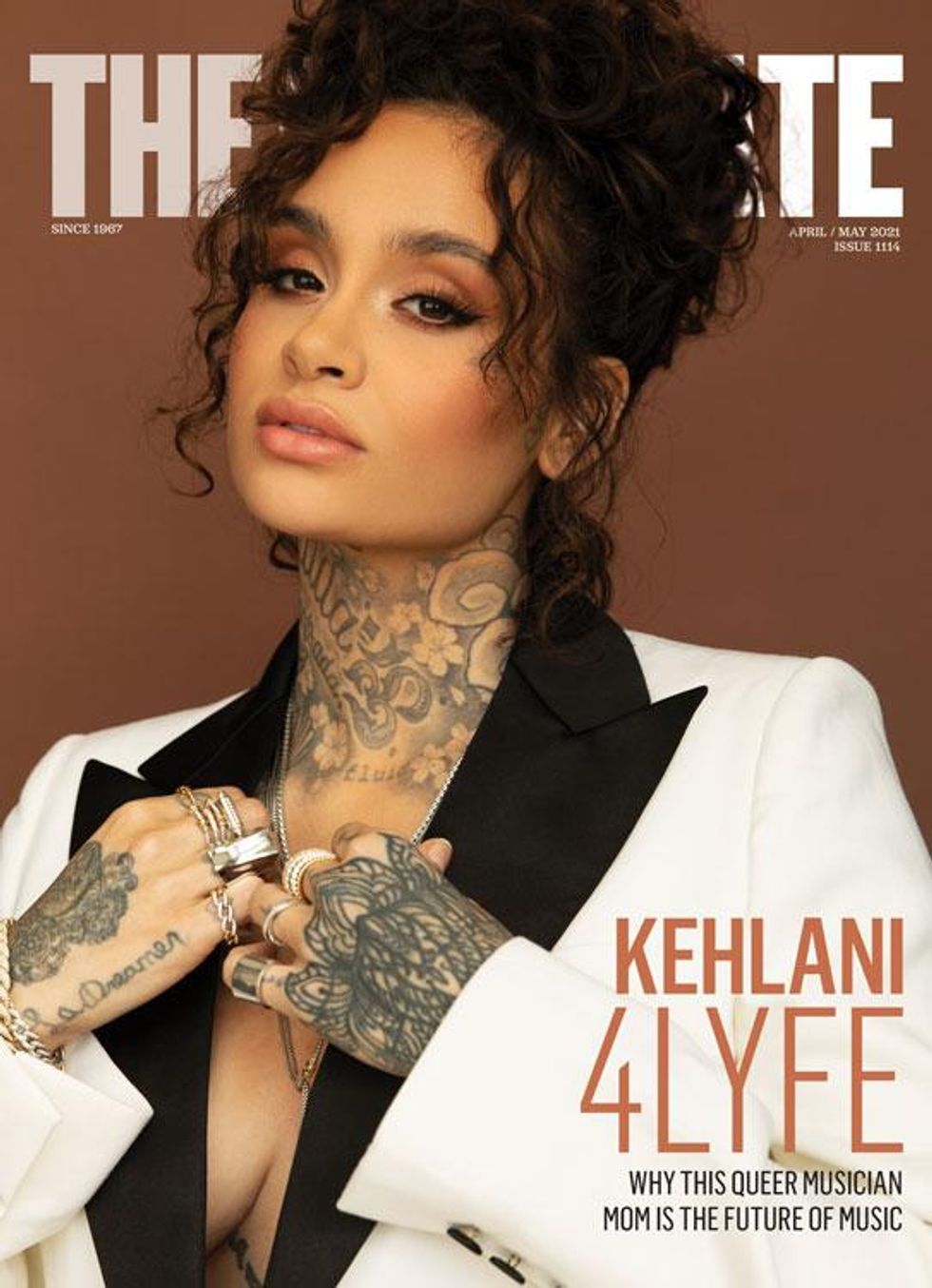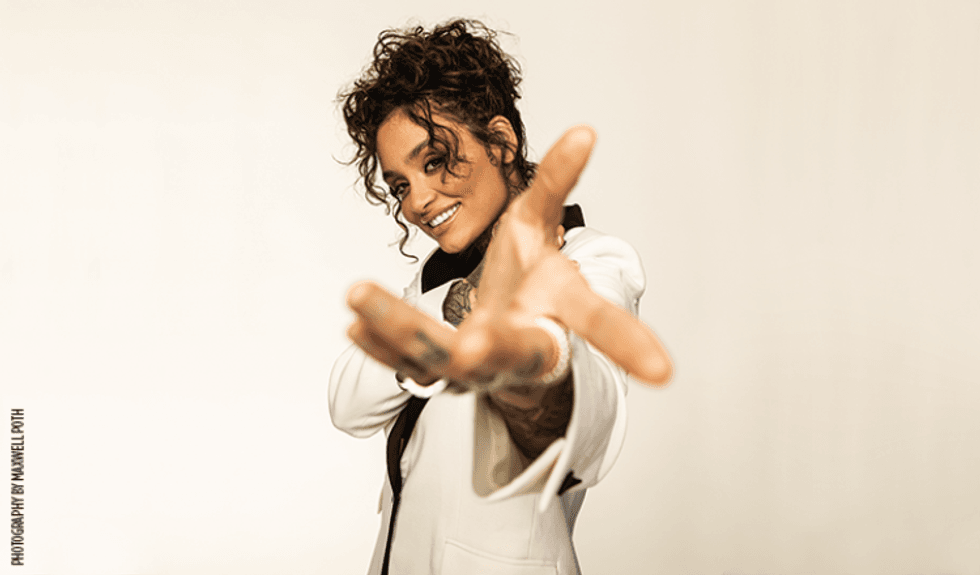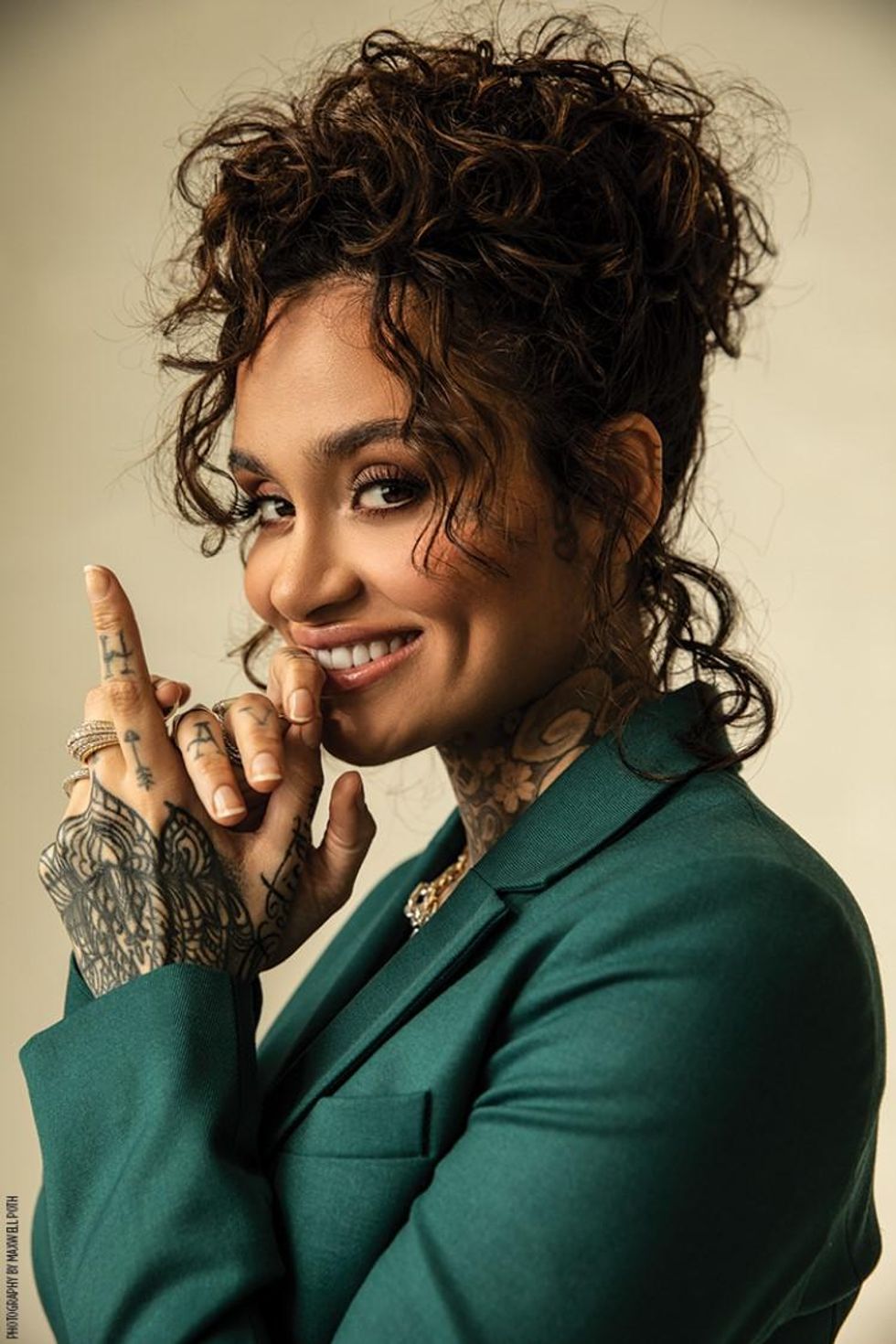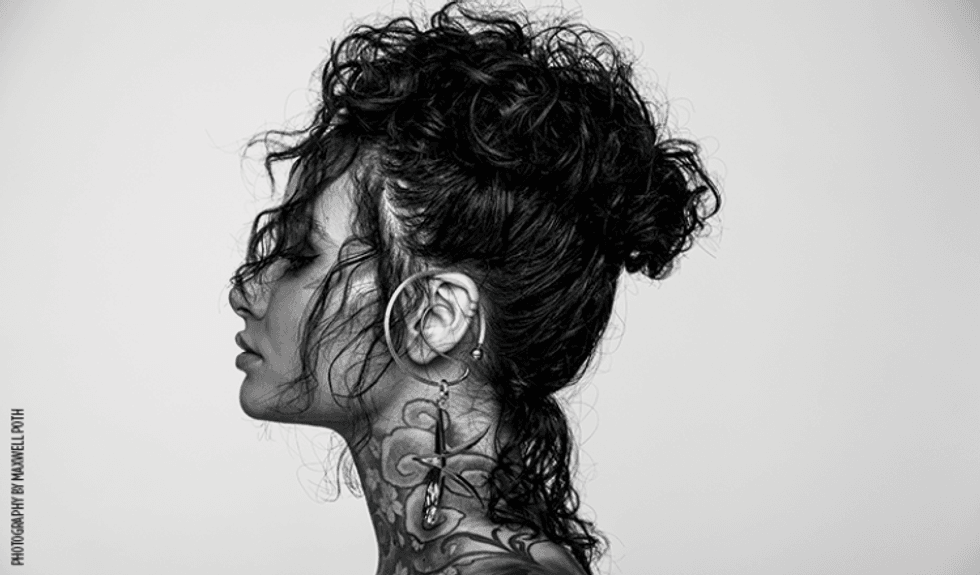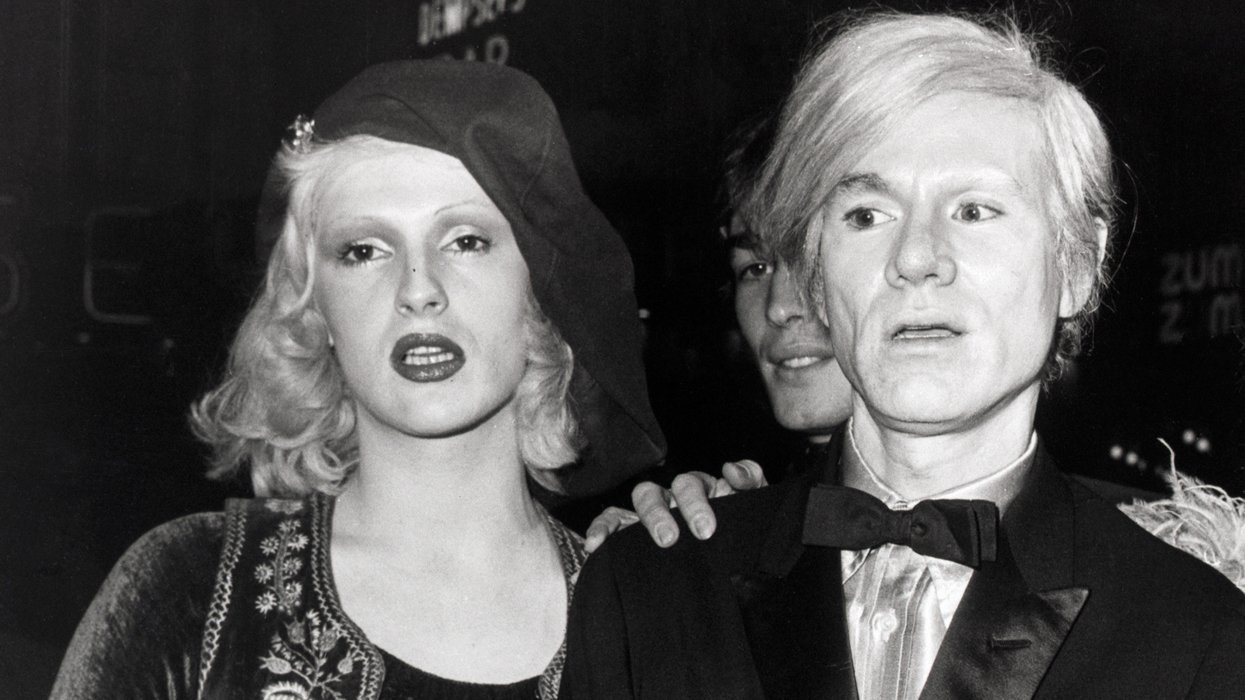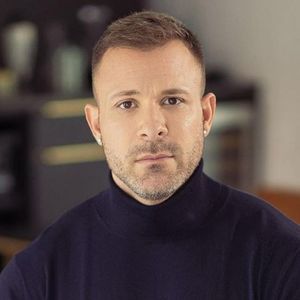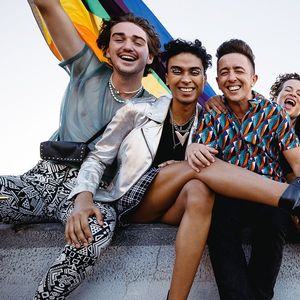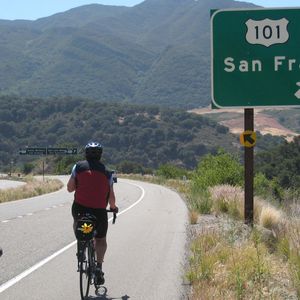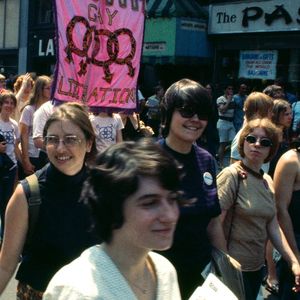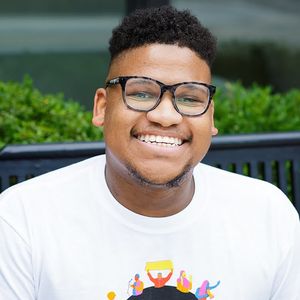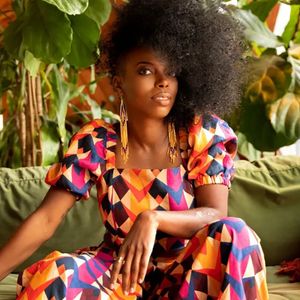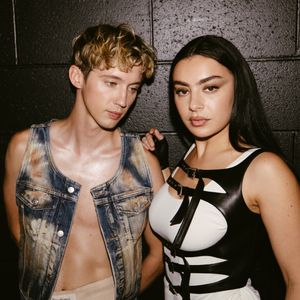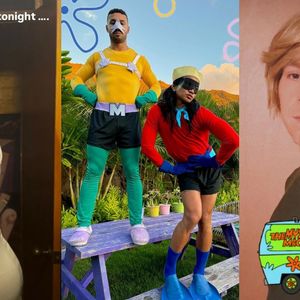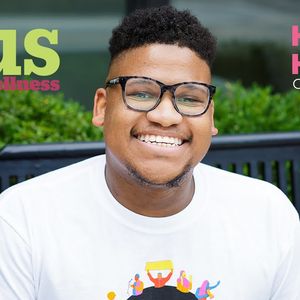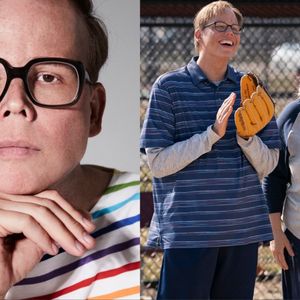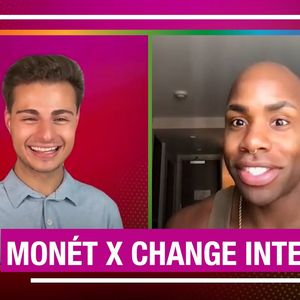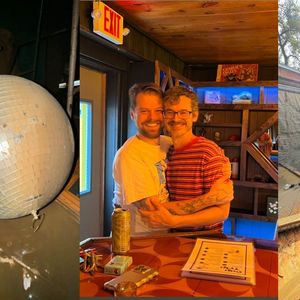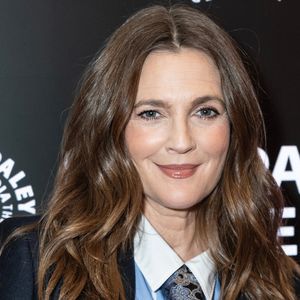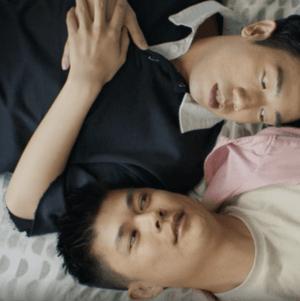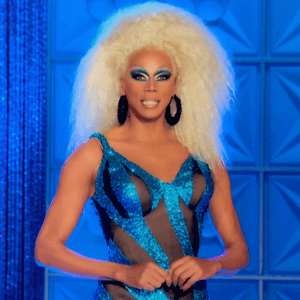Kehlani is a powerhouse all-around. Queer women are the future of music, and no one captures that spirit more than the Oakland, Calif.-born singer-songwriter and mom to a two-year-old child.
In the seven years since Kehlani released her debut mixtape, Cloud 19, she has amassed a slew of accolades -- like two Grammy nominations and multiple appearances on the Billboard 200 album chart -- that so many young, hungry, up-and-coming queer artists can only dream of achieving when they start putting their music out into the world.
Kehlani, who uses both she and they pronouns, is as prolific with their work as they are passionate about it. They have released three commercial mixtapes and two full-length studio albums since 2014 (the most recent being 2020's critically acclaimed It Was Good Until It Wasn't) with hardly any breaks in between. When it comes to working with and uplifting others, Kehlani's list of musical collaborators features the industry's brightest names, including Lesbian Jesus herself (Hayley Kiyoko), Musiq Soulchild, Jhene Aiko, Cardi B, Ty Dolla $ign, Justin Bieber, Zayn Malik, and James Blake.

With all of her success, Kehlani is one of only a few LGBTQ+ artists who has been able to break through into mainstream cultural consciousness -- and that's not something the 25-year-old takes for granted.
"I have a lot of privilege," Kehlani, who is queer and on a gender spectrum, says of the advantages she feels she has as a "cisgender-presenting, straight-presenting" person in a still very heteronormative world.
Kehlani adds, "I think a lot of artists who we talk about and say, 'Oh, they had to come out or they had to do this,' a lot of them can't hide it. A lot of it is very [much] in how they present. It's tougher for them. It's tougher for trans artists. It's tougher for Black gay men. It's tougher for Black masculine gay women."
Out and honest about their sexuality from the earliest stages of their career, Kehlani took to Twitter back in 2018 to clarify to the public that they identified as "queer," though they never felt like they had to do that in their personal life. They just are who they are.
"I didn't even really have to come out in my private life," she explains. "I don't walk down the street and people look at me and go, Oh, I bet she's queer. Or I bet that she's into women or anything like that because of the way I present. That's all privilege and I think that there are quite a few artists who were truly at the forefront but weren't able to make the strides that I was able to make being 100 percent myself because of the way they present and the biases and the phobias of the American public and the world.... I've been lucky, super lucky."
Kehlani is also proud to be a part of a new generation of musical artists that is unapologetic about their sexual identity and gender and that is celebrating -- not hiding -- all of the things that make them different and freer than generations past.
"Beyond even being celebrated, we get so much education from one another," she says about getting to be part of a generation where identity is being discussed more openly now than ever and how that's affecting the way people are learning and navigating the world. "There are so many people willing to have conversations where people who don't understand can potentially understand. So many people are willing to have teachable moments. That's awesome because a lot of...hurt and anger in the past generations have been rooted in truly not understanding or not having access to educational moments."

Kehlani regards their generation as one that is "able to talk about the gender spectrum and just how fluid and how limitless and how many options there are to truly figure out what it is exactly you identify with."
"When I make a misstep or when I say something wrong or when I truly don't understand, people have had teachable moments with me," they say. "I'm really appreciative for the people who take time to do that."
Those people who Kehlani says they've learned from the most include the women in their family, their fans who are so eager and willing to engage with them (even when they make a misstep), and their transgender friends who inspire them to live in their truth daily.
Kehlani acknowledges "all the beautiful Black trans women that I have in my life that I'm able to just witness -- not only living their true fucking power -- but [to] be courageous and be fearless and then fiercely educate everybody around them and just be a force in this world!" Those women have influenced her journey as a woman of color, Kehlani says.
"They do it so effortlessly that it comes off almost easy to people who don't know them," they say. "I have so many super badass, bad bitch, trans women friends that I'm just like, 'I bet people think this shit is a walk in the fucking park because of how you get up and get out the house every day and be this badass bitch.' But I know it's fucking hard."
It's those lessons of inclusion, authenticity, and openness that Kehlani wants to impart to a whole new generation, especially to young women. That's something personal to the singer, especially when it comes to raising her daughter, Adeya.
"There's a lot of societal standards and they're just old and outdated. Things like you have to go about life one way and you're raised to find something you're not passionate about and stick to it and make certain amounts of money...and then not help anyone and just hoard everything," Kehlani says.
"Anything you could imagine that we've been taught is our purpose, I just want my daughter to know that it's OK to feel you don't agree with any of that and it's OK to march to the beat of your own drum," they explain. "Too many kids, they grow up with these incredible, beautiful dreams that aren't anything like what we've been told we have to do. And then they hit teenager years and they're like, Oh, shit. I have to fall into the assembly line."

But society's strictures and expectations are something Kehlani seeks to steer Adeya away from by raising her daughter in a progressive, loving environment surrounded by family, where identity won't ever be an issue.
"All my friends, all her aunties, uncles, her godparents, everybody is just loudly queer," Kehlani says. "Our generation already kind of broke the mold of getting to that point, so I don't even think our kids are going to think about it as something that they have to identify and differentiate. I feel it should be normal. We'll be reading queer stories, queer books where the baby has two dads, two moms, two parents who don't identify as either. Movies that have that. She sees healthy queer couples. So, I don't think that she's going to even think about it as, This is different from normal."
As for what's in store for the artist and mom, Kehlani hopes to go back on the road again one day soon, especially since their most recent album was released in 2020, when live performances were shuttered.
"I really just want to tour," Kehlani admits. "I want to drop more music. I just want to be really consistent and kind of keep going in that way."

Reflecting on her career so far, the singer says, "It's been a lot of ups, it's been a lot of downs. Overall, it's an ultimate blessing. I think everybody is born with some type of wild passion. And then it's this teeny, tiny little fraction of people who are lucky enough...to be as successful as I am. When I think about that, I can never be anything but grateful or anything but blessed because I know there are plenty of people who are just as talented as me who are dying to be where I am."
Taking stock of their blessings helps inspire them and keeps them positive, Kehlani says.
"I've already made it so much farther than I ever dreamed. So everything that happens is a blessing."
Photography by Maxwell Poth
Hair by Davontae
Makeup by Patrick Ta
Stylist: Aisha Rae
Creative Agency: BL8K
Assistant Stylists: Angel Cross & Tashe Pollard
